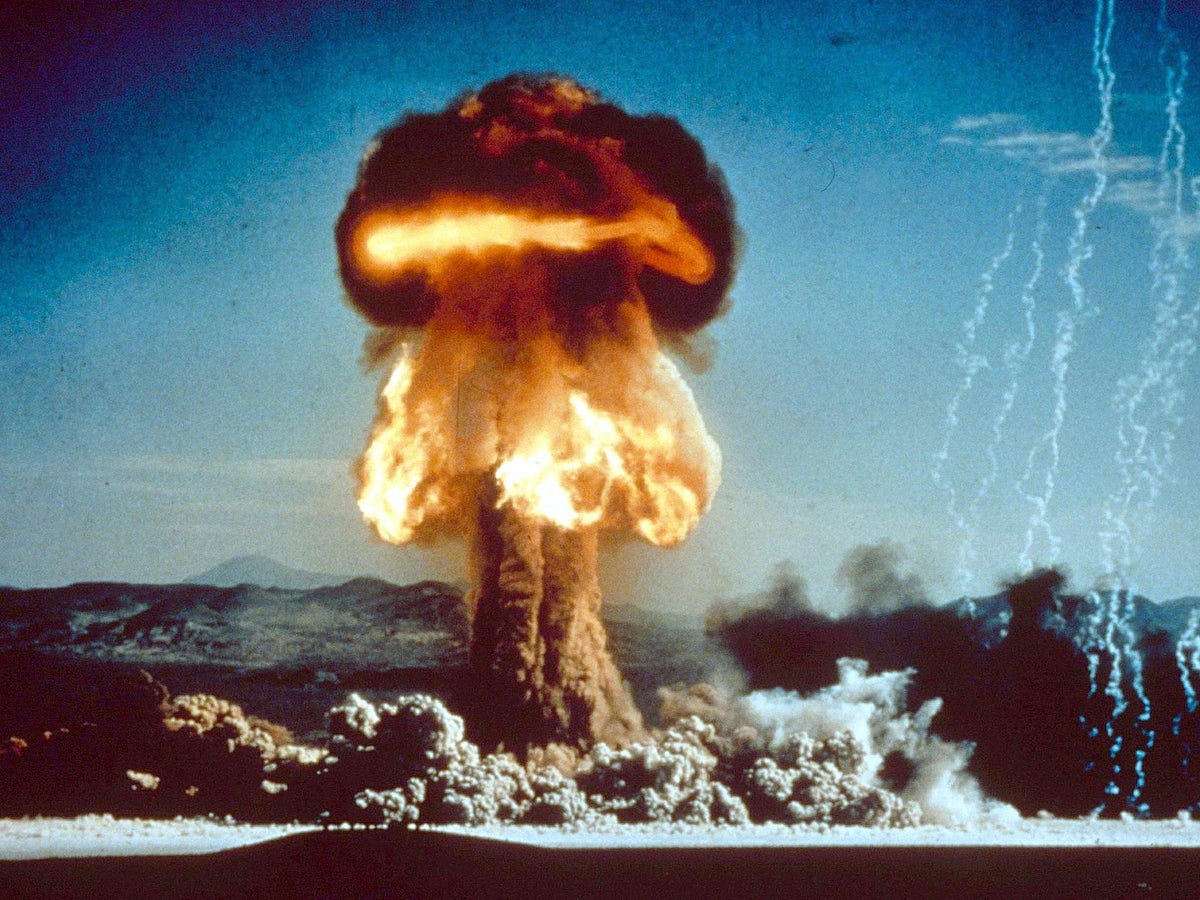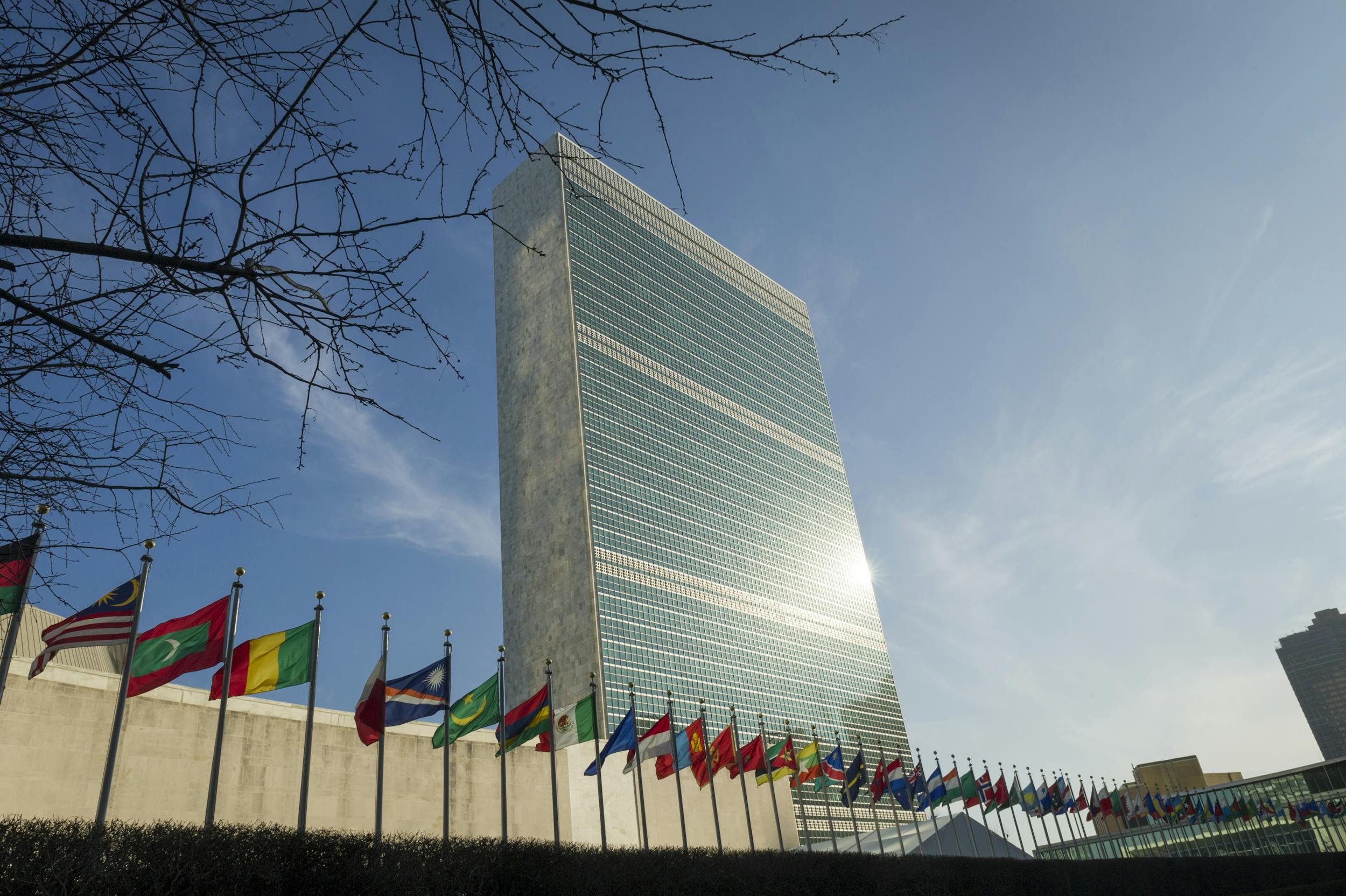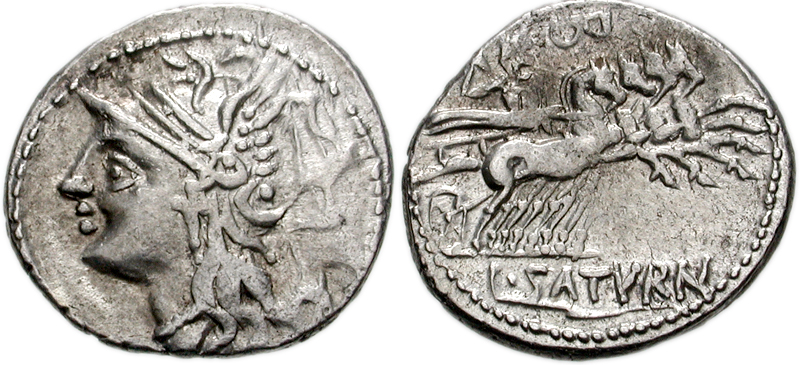My whole life, "World War Three" has always been shorthand for total nuclear annihilation. It became an expression, like hell freezing over, or when pigs fly.
For most of us common folk, it wasn’t a reality. It didn’t have any literal meaning. The theory was that, once one nuclear missile was launched, all of them, in every country that had them, would be launched, leading to total global annihilation. We learned expressions like “nuclear winter,” and “mutually assured destruction.” Surely no one would actually do that, we reasoned. The way we dealt with that unimaginable threat was to move it, in our minds, to the level of a nightmare, fantasy, and finally to several Hollywood storylines, which only went to prove that it was unthinkable.
There surely would never actually be a World War Three, right? And when the Berlin Wall fell, we told ourselves, ‘See? Nothing to worry about.’
Albert Einstein famously said, “I don’t know what weapons will be used in World War 3, but World War 4 will be fought with sticks and stones.”
But what if Einstein was wrong?
The problem with making WWIII the ultimate bogeyman is that it minimizes the millions of lives lost and the massive destruction that has happened over and over again since the end of WWII in places like Korea, Vietnam, Cuba, Panama, Grenada, the Falkland Islands, Kenya, Cyprus, Ireland, Bosnia, Kosovo, Syria, Libya, Yemen, Afghanistan, Iraq, Sierra Leone, Sudan, Congo... ‘At least it wasn’t World War Three, right?’
Winston Churchill and other notables have said, ‘Those who forget history are doomed to repeat it.’ Putin and I are the same age, so I know he remembers Winston Churchill. But neither of us was alive back when Hitler was more than just ink on the pages of a history book.
World War I wasn’t called that while it was going on.
Initially, it was simply called “the July Crisis.” But then other
players joined. Russia threw its weight behind Serbia, prompting Germany to
back Austria-Hungary, which caused Britain and France to join the Serbs and
Russians against the Germans. By the end of 1914, it was being called the World
War. You can read a column I wrote about the first World War, and the Church's involvement in it, here.
When Hitler invaded Poland on September 1, 1939, no one immediately announced WWII. A week later, when Time magazine used the term ‘World War II’, it was in a speculative sense, similar to the way I used the term World War III in my headline. But it caught on.
So far in the current crisis, Putin has thrown a significant military attack at Ukraine, killing thousands, similar to how Hitler threw his “blitzkrieg” (lightning attack) at Poland. Ukraine’s president Zelensky has warned that if Ukraine falls, Putin will push into Poland, Moldova, Finland, Sweden and Norway, as well as points south. Turkey must know it is a desirable target as well because of its control of access into and out of the Black Sea. Talking heads have opined that Putin won’t resort to nukes unless he feels that an enemy invasion onto Russian soil threatens Russia’s “soul”, its identity as a nation. And it’s not World War Three unless it goes nuclear, right? Right?
The majority of the world’s governments have strongly condemned the attack on Ukraine. They are sending money and weapons to Ukraine, freezing Russian assets, squeezing off shipments of goods into Russia, and refusing to buy goods from Russia. As I noted in my previous column, Russia was voted out of the Human Rights council at the U.N., and some nations have called for Russia's removal from the Security Council. On the other hand, Russia does have some allies in Belarus, Armenia, Iran and Syria, who might back Putin's push into other countries.
At what point would we start calling it World War Three?If you’ve read this column before, you know the focus is, not simply world events, but how those world events fulfill Bible prophecy. Does the current situation have anything to do with Bible prophecy?
Jesus foretold as part of his sign of “the last days” that people would see wars. ‘So what,’ you may say. ‘There have always been wars.’ True. But notice how he worded it in Matthew 24:6. “You will continually hear of wars and rumors of wars. See that you are not frightened, for those things must take place, but that is not yet the end of the age.” (Amplified Bible)
There were wars in Jesus’ day. He knew there would continue to be wars until the ‘end of the age.’ That’s why he gave a multi-part sign. But note how he continued: “For nation shall be roused up against nation, and kingdom against kingdom: and there shall be famines, and pestilences, and earthquakes, in diverse places.” (Luke 21:10,11, Haweis NT) These have been dubbed ‘the Big Four’ features of the sign of the last days: war, famine, pestilences (like the pandemic) and earthquakes.
The huge war between England and France in the late 1700s/early 1800s had many believing they were seeing the Big Four. that conflict between Wellington and Napoleon drew in Spain, Portugal, Germany, Russia, Denmark, Sweden, Austria, America and other countries. Accompanying the war was famine as farmers became soldiers and fields were left uncultivated, and soldiers stripped the foodstuffs from the countries they ravaged. Pestilence rose in the form of widespread diseases among the soldiers in the camps on both sides, which quickly spread to nearby civilians. There was even an earthquake in Crete that killed 2,000 people.
But Bible scholars knew something was still missing.
In Matthew 24:14 Jesus added one more detail to watch for: “This good news of the kingdom will be preached throughout the whole world as a testimony to all the nations, and then the end of the age will come.” John Calvin who lived in a turbulent time in the 1500s wrote that “to this day not even the slightest report concerning Christ has reached the Antipodes [what came to be called Australia] and other very distant nations.” Matthew Poole, a Bible commentator who wrote in the late 1600’s, recognized that ‘all nations’ meant the entire earth. “Though the Holy Scriptures, and ecclesiastical historians, give us a somewhat large account of the gospel being preached in Europe, Asia, and in Africa, yet we have little account from any of them of its being preached in America.” In 1706, Matthew Henry wrote, “The gospel shall be preached, and that work carried on ...so that all nations, first or last, shall have either the enjoyment, or the refusal, of the gospel.” In the mid-1850s commentator Campbell Morgan wrote: “Some claim that this has already been done, and that therefore the end of the age is necessarily close at hand. This conclusion is open to grave doubt.”
Is there still ‘grave doubt’? In the century-and-a-half since Morgan’s time, the good news has literally reached every nation. The Bible is the most widely translated book in the world, by a huge margin. The most widely translated website on the internet is jw.org, whose entire mission is the preaching of the good news of the kingdom.
Another reason to give thought to World War Three: serious students of the Bible are watching for the fulfillment of Paul’s words at 1 Thessalonians 5:3. “For when they shall say: Peace and tranquility; then sudden destruction will come upon them, as travail upon a woman with child; and they shall not escape.”
The greatest cry of peace in recent history was the end of World War 2. And that obviously was not the fulfillment of 1 Thessalonians 5:3, since the end didn't happen afterward... Perhaps because Matthew 24:14 had yet to be fulfilled. But that is no longer the case.
If this war in Ukraine grows into World War Three, could the announcement of the war's end be the expected cry of peace?
Time will tell. Click here to go to Part Two.
Bill K. Underwood is the author of several books, all available
at Amazon.com. You can support this site by purchasing a book.







